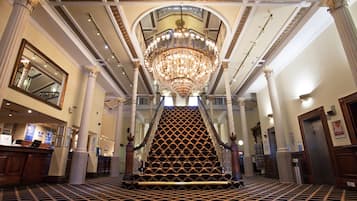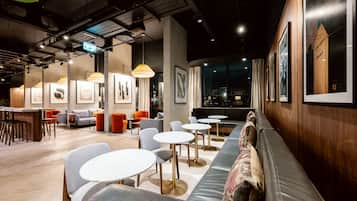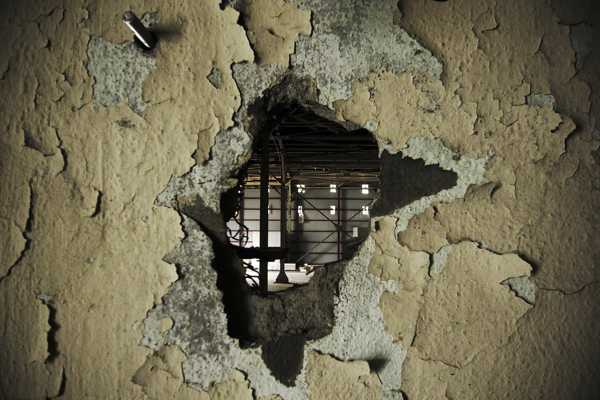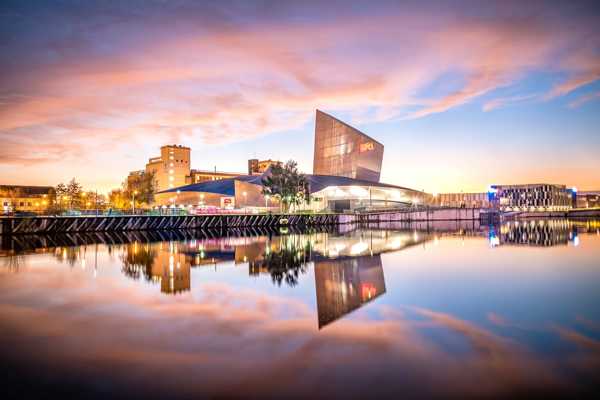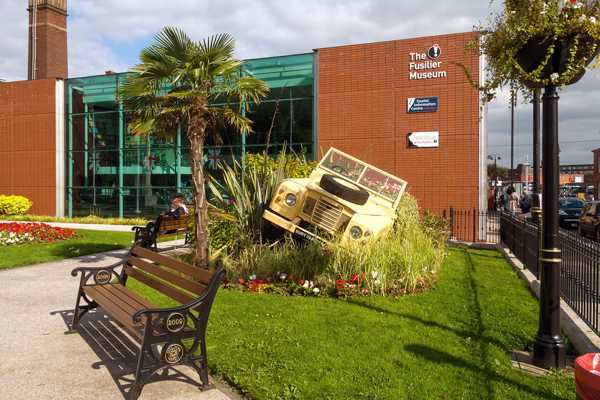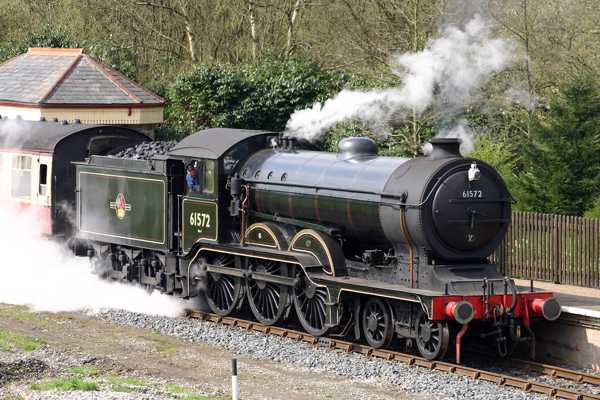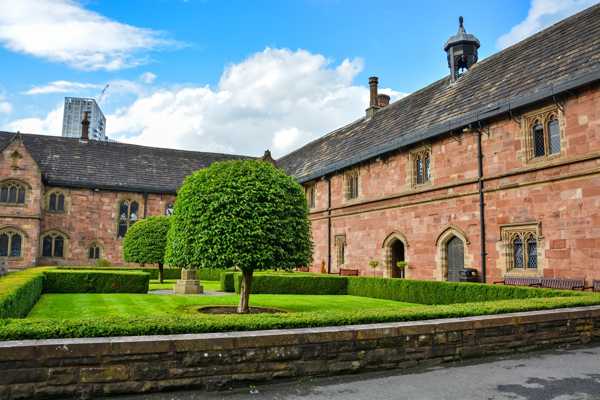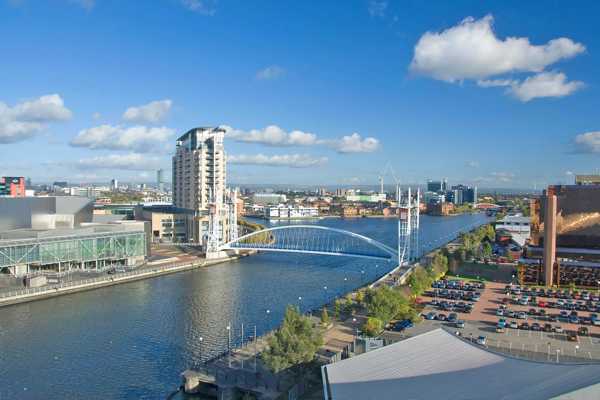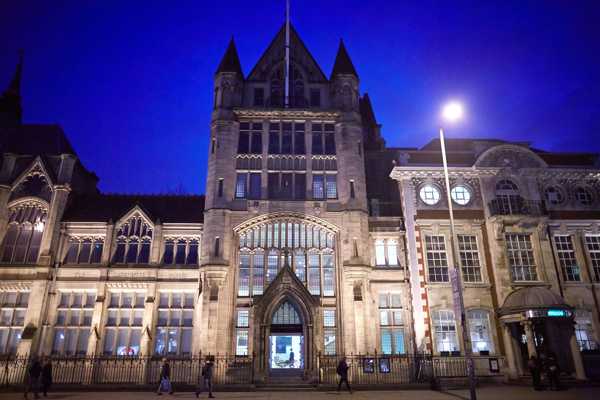Manchester Airport is an international airport in Ringway, England. It's around 9 miles southwest of Manchester city centre. The airport is considered the third busiest in the United Kingdom and the busiest outside of London. The large airport consists of 3 passenger terminals and 1 cargo terminal. It’s one of the only 2 airports in the UK to have 2 operating runways that spans over 10,000 ft in length.
Manchester Airport first opened in June 1938 and was known as Ringway Airport. It has expanded over the years and now covers an area of 1,400 acres. The busy airport has flights to nearly 200 destinations and handles nearly 28 million passengers annually. Due to this increased passenger demand, the airport undergoes continuous improvements to the terminal capacity and transport links to the city.
Manchester Airport - one of the highlights of Manchester Travel Essentials (Read all about Manchester here)
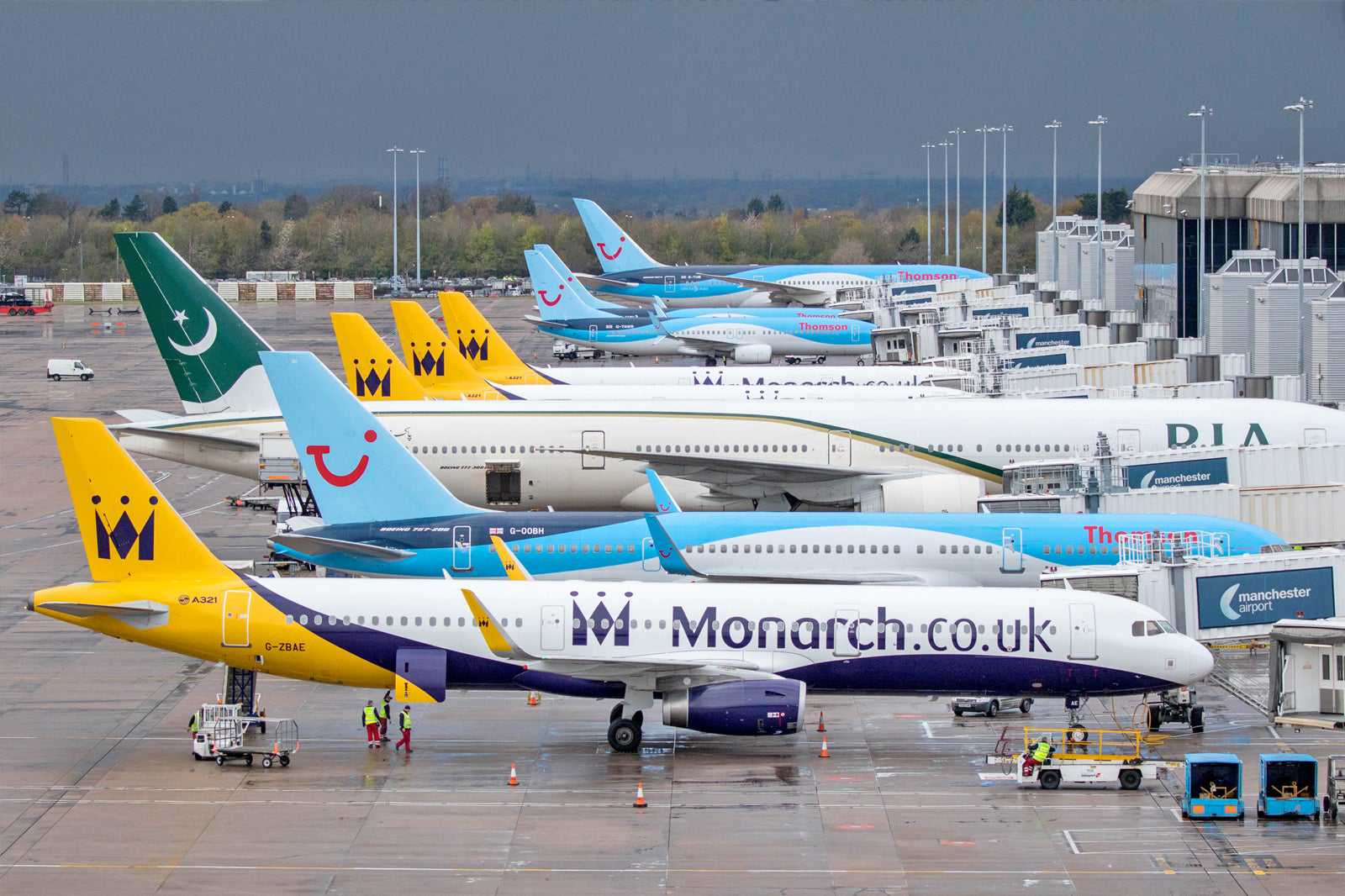
photo de RussellHarryLee (CC BY 2.0) modifiée
What are the highlights of Manchester Airport?
Manchester Airport is one of the largest and busiest in the UK. It's 3 linked passenger terminals are used by a variety of international and domestic airlines. The first 2 terminals are used by airlines flying to European and worldwide destinations, while Terminal 3 is reserved for domestic routes. The airport services a range of destinations, with its top 3 busiest routes being Amsterdam, Dubai and Dublin. A luxurious PremiAir VIP terminal opened in 2019, which includes limousine shuttles to flights.
As it handles millions of passengers per year, Manchester Airport has a good range of services for travellers. There are 2 main airport lounges, which can be pre-booked for passengers looking to wait in comfort. The rest of the terminals include a range of duty-free shops, restaurants and eateries, currency exchange booths and complimentary Wi-Fi. There's also a runway visitor park just outside of the airport, where you can watch planes taking off and tour inside retired aircraft.
A brief history of Manchester Airport
The original Manchester Airport took around 18 months to be constructed, with the official opening on 25 June 1938. During World War II, it served as the Royal Air Force Ringway station. The airport was important in terms of production and repair of aircraft during the war. It was also used for training of parachutists with around 60,000 paratroopers trained at the airport throughout the war.
After the end of the Second World War, the airport returned to civilian use and subsequently expanded rapidly. By 1958, the airport was handling 500,000 passengers per year and construction began on the first major modern expansion, which included the current Terminal 1 building. In 1975, the airport officially became known as Manchester International Airport. The 1990s saw a massive expansion to its parking, transport links to the city and the second runway, which brought the airport into the 21st century as one of the busiest in the UK.
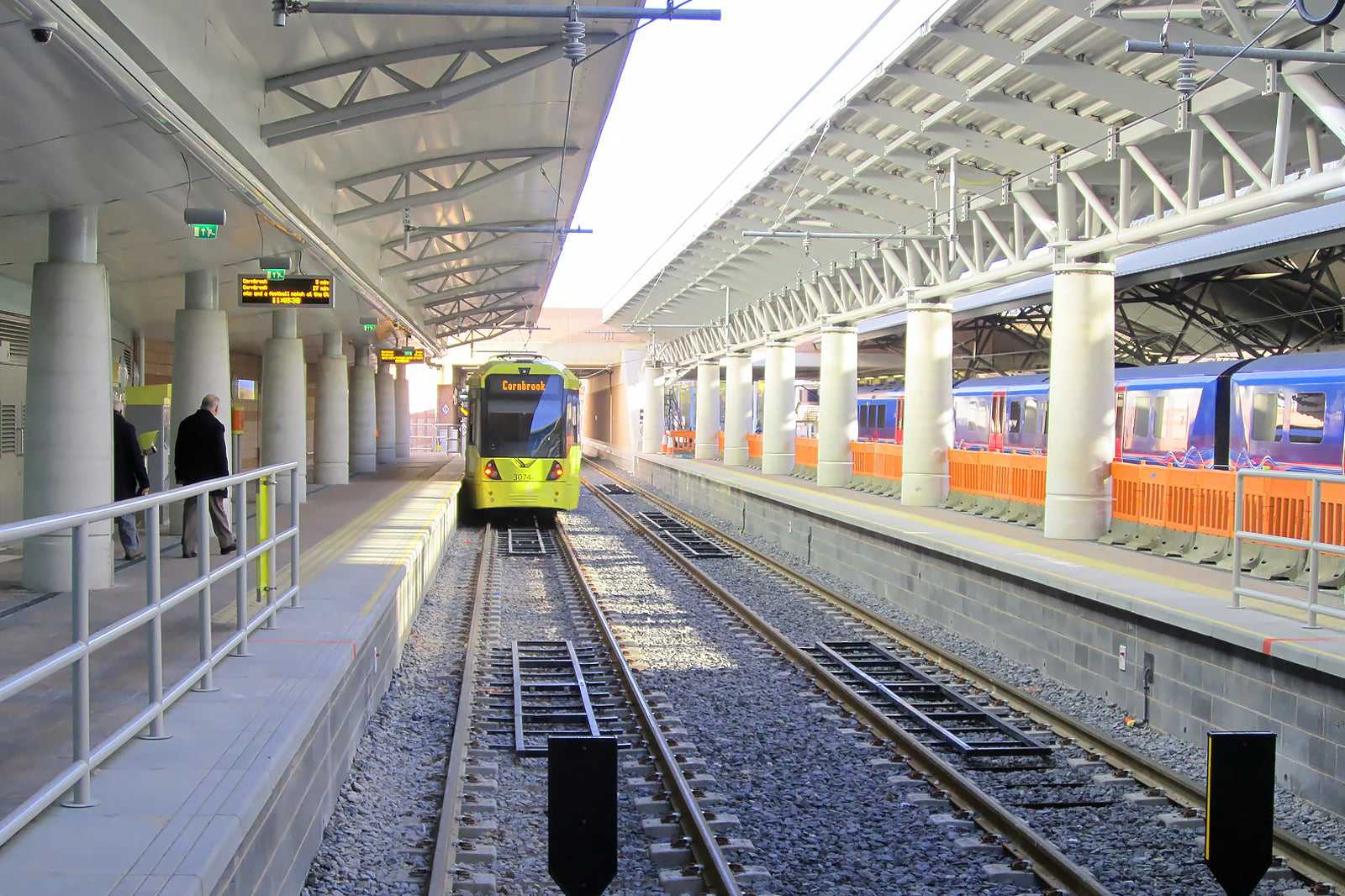
photo de Rept0n1x (CC BY-SA 2.0) modifiée
Getting to and from Manchester Airport
Manchester Airport is relatively well-connected, with a range of transport options available. Perhaps the most convenient option is the train. There are regular trains to Manchester Piccadilly 7 days a week from Manchester Airport station. The journey time is a quick 20 minutes, but it's worth noting that the airport's train station itself is at least a 10-minute walk from the terminals via the Skylink walkway, which can be challenging if you're carrying a lot of luggage.
Aside from the train, there's also a range of local and regional buses that link to the airport station throughout the day. The 24-hour Stagecoach bus service is excellent for late-night flights.
If you prefer driving, there is a free drop-off zone at the airport. Paid parking is found in the multi-storey car park at Terminal 3. Black cabs and ride-hailing services are available outside each terminal at the airport.
Manchester Airport
Emplacement : Manchester M90 1QX, UK
Téléphone : +44 (0)808 169 7030







